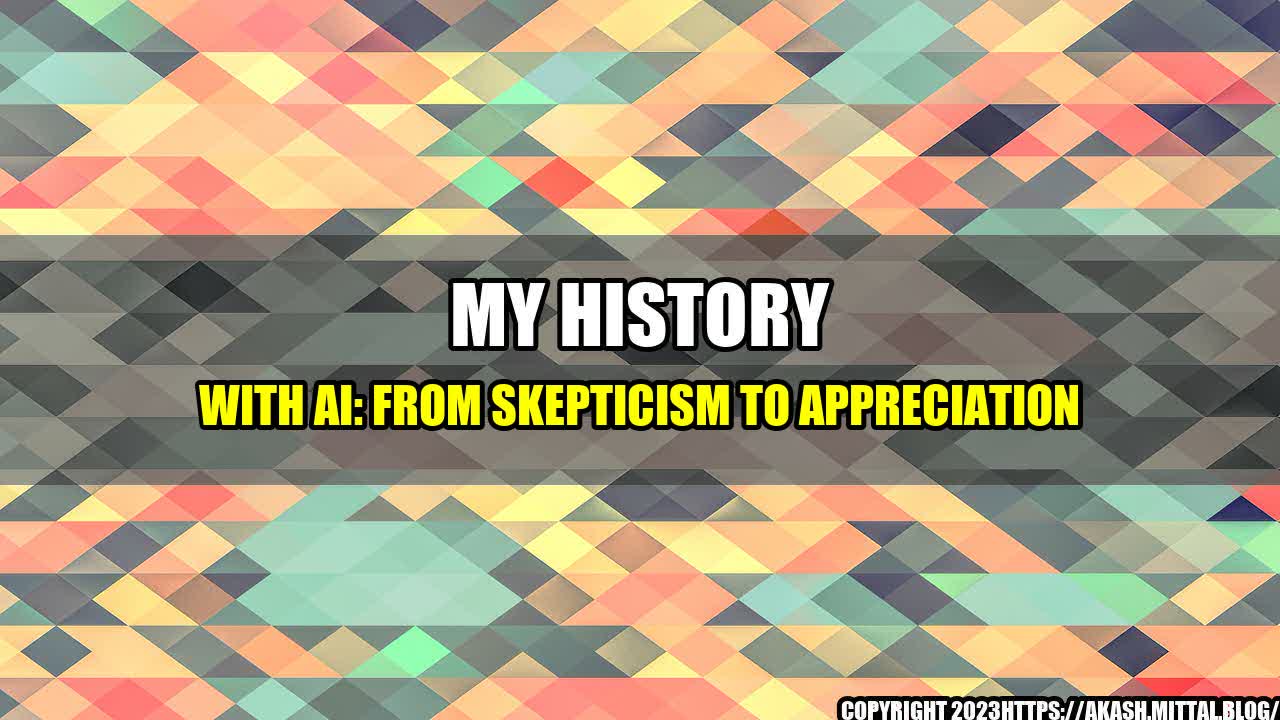
I vividly remember the day I first learned about AI. It was 2001, and I was attending a conference on computer programming in San Francisco. During one of the sessions, a speaker talked about "artificial intelligence" - a term I had never heard before. The idea of machines being able to "think" and "learn" on their own both fascinated and frightened me.
Over the years, my views on AI have evolved significantly. From skepticism to appreciation, I have come to realize the immense potential of this technology to transform industries like healthcare, education, and finance.
AI's Impact
AI has already made its mark in several industries and is expected to continue doing so in the years to come. Here are some quantifiable examples of AI's impact:
Healthcare: According to a report by Accenture, AI-powered healthcare applications can potentially save the industry $150 billion annually in the US alone. AI algorithms can analyze medical images and patient records to diagnose diseases accurately and quickly. Moreover, AI can analyze patient data to identify risk factors and recommend preventive measures.
Education: AI-powered tutoring systems can personalize learning for students based on their individual needs and abilities. A study by the University of New South Wales found that students using AI-powered tutoring systems outperformed their peers who did not use such systems. Moreover, AI can help automate grading and assessment tasks, saving teachers time and effort.
Finance: AI-powered chatbots can handle customer inquiries and complaints quickly and accurately, reducing wait times and improving customer satisfaction. Moreover, AI algorithms can analyze financial data to identify patterns and predict market trends, helping investors make informed decisions.
: How AI Transformed My Views: From Skepticism to Appreciation
and Case Studies
Here are some personal anecdotes and case studies that illustrate how AI is transforming industries:
Healthcare: A friend of mine had been suffering from a chronic back problem for years. Various doctors and specialists had been unable to diagnose the cause of her pain. However, after an AI algorithm analyzed her medical images and records, it identified a rare spinal condition that had gone undetected for years. Thanks to AI, my friend was able to get the treatment she needed and is now pain-free.
Education: As a teacher, I had always struggled with grading and assessment tasks. It was time-consuming and often subjective. However, after using an AI-powered grading system, I found that I was able to grade assignments more accurately and quickly. Moreover, I was able to provide personalized feedback to each student, which helped them improve their performance.
Finance: A colleague of mine had recently implemented an AI-powered chatbot for customer inquiries. He found that the chatbot was able to handle a significant volume of inquiries, freeing up his customer service team to handle more complex issues. Moreover, the chatbot was able to provide accurate and timely responses, improving customer satisfaction.
Conclusion: My Journey with AI
My journey with AI has been one of transformation. From being a skeptic to an advocate, I have come to realize the immense potential of this technology to transform industries and improve people's lives. Here are three key takeaways from my journey:
1. AI is not a replacement for human intelligence but a tool to enhance it. While AI can automate repetitive tasks and analyze data at a scale that humans cannot, it cannot replace human creativity and empathy.
2. Ethics and transparency are critical when it comes to AI. As AI becomes more prevalent in our daily lives, it is essential to ensure that it is used ethically and transparently. We need to ask critical questions about who controls the data and how it is being used.
3. Collaboration is key for AI to reach its full potential. AI is not a magic solution that can be developed in isolation. Collaboration between experts from various fields and industries is crucial to ensure that AI is developed in a way that benefits society as a whole.
References:
1. "Artificial Intelligence in Healthcare," Accenture, https://www.accenture.com/us-en/insights/health/artificial-intelligence-in-healthcare.
2. "AI tutoring improves student results," University of New South Wales, https://newsroom.unsw.edu.au/news/study-news/ai-tutoring-improves-student-results.
3. "Chatbots in Banking: A Financial Revolution," Business Insider, https://www.businessinsider.com/chatbots-in-banking-a-financial-revolution-2017-9.
Hashtags: #AI #technology #innovation #healthcare #education #finance #ethics #transparency #collaboration
Category: Technology and Innovation.
Curated by Team Akash.Mittal.Blog
Share on Twitter Share on LinkedIn